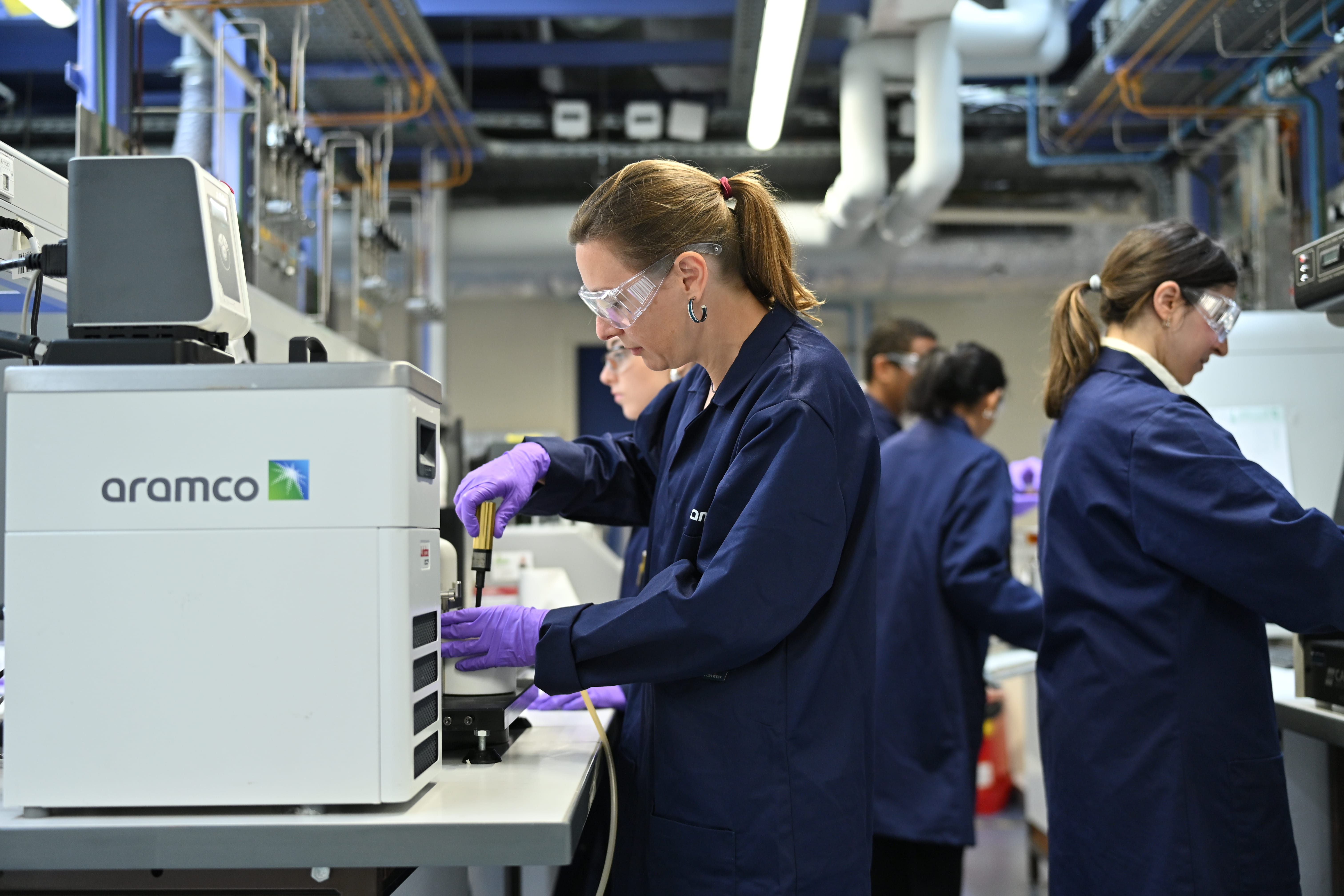When Madeleine Mitschler was a young materials engineering student, ‘net zero’ had yet to become part of the global conversation.
“Not many people were talking about sustainable mobility back then,” she recalls. “Now everyone is.”
Her engineering journey started in France with her initial degree in materials science before pursuing her PhD studies in Norway and later Denmark.
Working as a senior science engineer in the Paris Research Office of Aramco Europe, she believes the increasing focus on more sustainable practices will attract more women into what has been a historically male-dominated profession.
“Today sustainability is a very large part of the work of an engineer in every sector. I think this is very attractive to women,” she says. “We need to believe in what we do. We need to know we are doing it for the good.”
Her words strike a hopeful chord on International Women in Engineering Day, which celebrates the achievements of women in the profession. Now in its 12th year, it was originally introduced by the UK’s Women’s Engineering Society, an organisation formed in part to promote engineering as a rewarding job for women. More than a century later, the Society continues to advocate for gender equality in engineering and promotes inclusion across the wider industry.
Ship to shore
Anar Suleimenova, a quality management engineer in The Hague headquarters of Aramco Europe, understands what it is like to be the only woman in the room.
Before joining Aramco Europe, she occasionally worked offshore on large, heavy-lift vessels, where she was responsible for quality control during the installation of massive foundation piles. The majority of her colleagues at sea were men.
These days she monitors materials procured directly by Aramco—ensuring they are compliant, safe to use on site, and have passed all relevant tests and inspections. It can be demanding work, but it is equally rewarding, motivating her to learn and improve.
“Our team in The Hague is diverse, and as a woman, I can sometimes bring a different perspective to discussions, which helps lead to more balanced decision-making,” she says.
The daughter of parents who were both engineers in her native Kazakhstan, she knew what to expect from a career in engineering while also balancing raising children and having a family life.
Problem solvers
“Engineering is not just about equations and formulas – it is about finding solutions for our daily lives. As engineers, we try to find solutions with a problem-solving mindest,” she says.
Aneska Viviers is a quality management engineer and capital projects quality specialist in the Quality Management Division at Aramco Europe. She plays a key role in ensuring quality is embedded across all phases of large-scale capital projects, from design through commissioning. Aneska is currently pursuing a Doctorate in Management, driven by her belief that more women should aspire not only to technical excellence but also to leadership positions within the engineering sector. She is passionate about promoting visibility, inclusion, and long-term career growth for women in engineering.
“It’s incredibly fulfilling to work at the intersection of quality, innovation, and large-scale capital projects. I enjoy applying both engineering knowledge and strategic thinking to solve real challenges. Being part of a global organization with high standards drives me to constantly improve and mentor others on that same path.”
Madeleine, Anar and Aneska all enjoy the mix of environments and opportunities that a career in engineering offers – the combination of practical work and camaraderie onsite and the processes of the office, which help to make it such a rewarding profession.
So, what advice do they have for young women who may be now considering a career in engineering?
“Be brave. Be adventurous. This is a great job for anyone who likes challenges and stimulation,” says Madeleine. “It’s the multi-disciplinary aspect of the work that is really appealing. It’s more than just being technically good in your role. It’s the practical experience you gain, for example from working on a night shift in the plant, or the communications skills you need for delivering a talk at a conference. This all helps you to test yourself and push your boundaries.”
Curiosity and confidence
Aneska agrees that young women should step into the profession with both curiosity and confidence.
“Engineering needs diverse voices, your ideas and perspective will bring value,” she says. “Don’t be afraid to challenge norms, pursue higher education, or lead early. Learn the technical skills, but also develop your leadership and communication abilities. Engineering is evolving, and there’s space for you to shape that evolution. Your unique perspective as a woman is a strength. Seek mentors, build a strong network, and never underestimate what you bring to the table.”
Anar also emphasizes the importance of believing in yourself and your abilities.
"At the beginning of your career, you may feel the need to work harder just to prove you are on the same level. To young women, I would say this is not necessary. The most important thing is to stay curious, face challenges with confidence and grow through every experience.”




